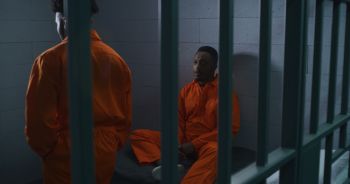In another poor showing, the main tracking index for the U.S. economy plunged today as Secretary of the Treasury Henry Paulson declared it an official recession. The technical definition of a recession is a quarter of negative gross domestic production. As the results of the last cycle indicate, there are few signs of recovery in the current climate.
From Associated Press:
NEW YORK (AP) Confirmation that the U.S. is in a recession and signs pointing to a prolonged downturn sent Wall Street plunging once again Monday, hurtling the Dow Jones industrials down nearly 700 points and more than half of last week’s big gains. All the major indicators more than 7 percent, and the Standard & Poor’s 500 index dropped nearly 9 percent.
The market began the day sliding on initial reports that the holiday shopping season, while better than some retailers and analysts feared, was mixed, a sign that Americans are very reluctant to spend. That has Wall Street concerned about the impact of a continuing drop in consumer spending on the sagging economy.
According to preliminary figures released by ShopperTrak RCT , a research firm that tracks total retail sales at more than 50,000 outlets, sales over the Thanksgiving weekend rose only modestly. Investors are worried that this portends a disastrous holiday season, which would be troubling not only for retailers, but for an economy that depends on consumers for more than two-thirds of its growth.
Meanwhile, downbeat economic reports on the manufacturing sector and construction spending only added to investors’ concerns. Speeches from Federal Reserve Chairman Ben Bernanke and Treasury Secretary Henry Paulson also did little to assuage investors about the downturn.
The day’s news reminded investors, who last week were buying on a burst of optimism, that the economy is still in serious trouble. And at midday, Wall Street had confirmation of what everyone has suspected for months, that the nation is indeed in a recession. The National Bureau of Economic Research, considered the arbiter of when the economy is in recession or expanding, said the U.S. recession had begun a year ago, in December 2007.
That assessment made the retail sales figures all the more unnerving.
“Unfortunately, two-thirds of the American economy is based on the spending of the American consumer,” said Mike Stanfield, chief executive of VSR Financial Services. “When the consumer pulls back, it’s very hard for the economy to gain much traction.”
Investors had been hopeful that last week’s rally — when the major indexes shot up by double digit percentages — was a sign that some stability had returned to a market badly shaken by months of discouraging economic data. But analysts expect economic concerns to weigh on the market for some time to come.
“Everyone knows the recession is on us, the question is now will it be short and shallow or long and severe,” Stanfield said.
Chuck Widger, chief executive of investment management firm Brinker Capital, expects the volatility to continue until investors have better visibility on the future.
“Investors are looking for better data on the economy,” he said. “We’ve got baked in pretty nasty assumptions for the economy this quarter. The markets are looking ahead to the first quarter for data that will confirm or deny the bad news.”
According to preliminary calculations, the Dow Jones industrial average fell 679.95, or 7.70 percent, to 8,149.09. The Standard & Poor’s 500 index dropped 80.03, or 8.93 percent, to 816.21, while the Nasdaq composite index fell 137.50, or 8.95 percent, to 1,398.07.
















